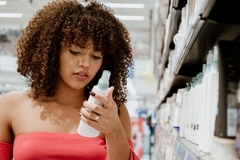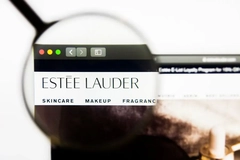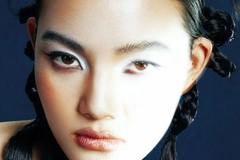Global trends in peptides for hair care
Explore the proliferation of peptides in hair care formulations

The use of peptides, valued in skin care for their anti-aging and repairing properties, is expanding in hair care. Peptides address consumer demand for advanced solutions targeting hair strength and scalp health, reflecting the broader “skinification” trend.
Innova Market Insights’ Innova360 research explores the emerging trends in peptide-driven hair care, highlighting the potential of the ingredient to deliver long-lasting results in hair wellness.
Emergence of peptides in hair care
Initially known for their beneficial effects in wound healing, peptides have become a key ingredient in personal care, primarily skin care, as a science-backed solution for anti-aging concerns. Skin care with peptides holds a mid-size yet growing market, suggesting that peptides offer strong growth potential as consumers seek high-efficacy solutions.

Recognizing the structural similarities between skin and hair proteins, brands are incorporating peptides into hair care formulations. They strengthen hair fibers, improve resilience, and enhance moisture retention. Additionally, peptides benefit all hair types and textures, making them a versatile ingredient in hair care and appealing to a broad consumer base.
Hair care product trends
Between 2020 and 2024, the global market for hair care launches with peptides grew at a 29% CAGR. Hair treatments, shampoo, conditioner, styling, and coloring are the top subcategories of these launches.
Peptides, trusted for their proven effectiveness in skin care, are gaining more attention in hair care. This trend leads brands to explore the benefits of hair health at a molecular level, occupying a small market size globally.
The market growth aligns with the “skinification” movement, where hair and scalp products adopt skin care principles to promote overall hair health. For consumers addressing damage, thinning, or breakage, peptides offer a scientifically backed, effective solution, positioning them as a valuable ingredient in the evolving hair care market. The “skinification” of hair care products grows with peptides enhancing formulations.
The “skinification” of hair care products grows with peptides enhancing formulations.
Peptide-driven hair care in Europe
In Europe, hair care launches with peptides experienced a 37% CAGR growth between 2020–2024, driven by a strong preference for premium and luxury products. Nearly 2 in 5 European consumers indicate that more expensive hair care products offer better ingredients and superior benefits, encouraging brands to innovate with peptide-infused formulations.
Europe fosters the development of advanced hair care solutions as a leading hub for high-end cosmetic ingredient manufacturing. Products like Miriam Quevedo’s Extreme Caviar Special Dandruff Shampoo exemplify the region’s expertise, combining repairing peptides, antioxidant-rich vitamins, and natural plant substances for scalp nourishment and hair revitalization.
This growing demand for science-backed, luxurious hair care makes peptides a key ingredient in the evolving European beauty landscape.
Top hair care brands and companies
Henkel, L’Oréal, Aquis Hairsciences, Unilever, and Oriflame are the top five companies globally for hair care launches with peptides. Peptide-infused hair care is seeing strong adoption among premium companies, driven by the growing demand for advanced repair solutions.
One key factor behind this trend is the high cost of developing peptide-based formulations. Formulating peptides requires advanced technology, making them more expensive to develop than traditional proteins like keratin or collagen.
Hair repair formulation trends
Hair care formulations with peptides increasingly target damaged and dry hair, addressing consumers’ top concerns globally. Frequent heat styling, chemical treatments, and hair coloring weaken hair structure, driving demand for bond-repairing solutions. Over half of consumers globally who use hair coloring products color their hair once or a few times a month, demonstrating the need for effective repair products.  Beauty consumers are searching for hair products that repair damage.
Beauty consumers are searching for hair products that repair damage.
Dry hair concerns affect all hair types and textures and are exacerbated by pollution, high temperatures, and dry climates. Peptides stand out as a solution, penetrating the hair shaft to rebuild keratin and strengthen the hair structure. Their scientifically backed benefits make them a preferred ingredient in modern hair care formulations.
Forty-two percent of consumers globally seek shampoo to repair damaged and broken hair. Bio-tech-driven formulations, inspired by natural keratin and collagen structures, are steadily gaining appeal for their high precision and efficacy. Products like K18 Biomimetic Hair Science Damage Shield pH Protective Shampoo use biomimetic peptides to maintain hair strength, keratin levels, and natural pH, ensuring moisture retention.
This market movement aligns with Innova’s top personal care trend for 2025, “Verifiable Value,” where consumers seek high-performance products with functional actives, backed by scientific research and proven results.
Personalized hair care trends
Peptide-infused treatments are becoming a popular form of personalized hair care, offering targeted solutions for common hair and scalp concerns. With 23% of consumers seeking anti-hair loss and hair growth treatments and 38% looking to hydrate dry hair, brands are responding with innovative formulations.
Products like Tara Rosemary Remedy Intensive Anti-Hair Fall Scalp Treatment combine peptides and keratin with botanical extracts to stimulate hair growth and strengthen strands.
Scalp health is also emerging as a key focus, with 67% of consumers globally seeking products that enhance scalp quality. This finding reflects Innova’s top personal care trend for 2025, “Microbiome Emergence,” highlighting interest in a healthy skin microbiome coming into focus, with a special interest in prebiotics and postbiotics with proven benefits.
Products like Coco and Eve Tripeptide Hair Density Serum highlight improved scalp health with probiotics and caffeine and the use of advanced peptide technology for fuller and thicker hair.  Pollution, high temperatures, and dry climates exacerbate dry hair concerns.
Pollution, high temperatures, and dry climates exacerbate dry hair concerns.
What’s next in peptides for hair care?
The peptide market in hair care is expanding, offering significant opportunities for brands to cater to growing consumer concerns about hair health. By combining peptides with trending plant-based extracts like rosemary, ginseng, and green tea, brands can deliver a multidimensional approach to hair care, from moisture retention and scalp balance to strengthening and anti-aging benefits.
Incorporating plant-based extracts into peptide-infused hair products also aligns with the values of eco-conscious consumers, providing a more sustainable approach to hair care.
As the anti-aging hair care trend grows, peptides can be explored to address aging hair concerns like hair thinning, hair loss, and graying. With 56% of consumers globally worried about age-related hair issues, peptides like palmitoyl tetrapeptide-20 can potentially increase melanin levels and delay graying.
Advancements in R&D and formulation technologies are likely to further enhance the efficacy of peptide-infused products, opening doors for personalized, science-backed solutions that support hair vitality.
This article is based on the Innova Market Insights report “Trending in Peptides in Hair Care — Global.”













